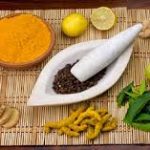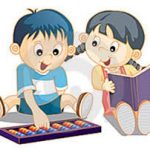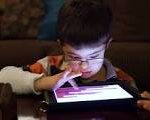Attention deficit hyperactivity disorder (ADHD) manifests in childhood with symptoms of hyperactivity, impulsivity, and/or inattention. In addition, there are other secondary symptoms associated with ADHD such as insomnia, learning disabilities, and delayed language development. The symptoms affect cognitive, academic, behavioural, emotional and social functioning. ADHD is found to be more common in boys than girls. It often continues into adolescence and adulthood. If left untreated, it leaves millions of children and adults incapacitated causing a lifetime of frustrated dreams and emotional pain.
The most commonly prescribed modern medications are central nervous system stimulants combined with counselling and cognitive behavioural interventions. The role of dopamine and nor-epinephrine regulation in patients with ADHD is considered the most important in treatment. The symptoms associated with ADHD cease only for the time these medications are active within the body. When the medication wears off, the symptoms return. A patient taking these medications needs to continue taking them throughout his/her life. There are many potential side effects of stimulants, including: decreased appetite, poor growth, dizziness, insomnia/ nightmares, mood liability and psychosis. From a holistic point of view, chemical over stimulation of the nervous system isn’t healthy. Fortunately, Ayurveda provides safe and natural treatment for ADHD.
ADHD – An Ayurvedic Perspective :
ADHD is a Vata-Pitta predominant disorder. In Ayurveda, there are references in the Charaka Samhita that cite symptoms associated with inattention, hyperactivity and compulsive behaviour as the symptoms of Vata imbalance in the body. The Charaka Samhita states, “If Vyana-vayu is occluded by Prana-vayu, then there will be loss of all thesenses, and there will loss of memory as well as strength.” Pitta symptoms include: anger, aggressiveness, self-ruining behaviour, increased body temperature, discolouration of eye/ skin and upashaya (relief) with coolant activities.
Attention Deficit Disorder in children may result from over-stimulation of senses from the environmental pollutants of the modern world. They are exposed to myriad toxins through air, water and food now-a-days. It may also result from Beej Dushti during conception or Garbhaja Kaaranas (causes in the prenatal period). Vata dosha is a combination of aakash and vaayu mahabhoot, because of which, it is the most unstable dosha and also causes imbalance in other doshas, Kapha and Pitta. In the case of hyperactivity and attention deficit disorder, there is vitiation of vayu and akash mahabhoot guna and suppression of pruthvi mahabhoot qualities. Hence, from the perspective of Ayurveda, ADHD is a condition of increased expansive and creative energies and decreased stability. To treat the symptoms of ADHD, Ayurveda seeks to counterbalance the unstable elemental forces of akaash and vayu by increasing the stability factor of pruthvi mahabhoot.
Treating ADHD :
 To treat ADHD, Ayurveda utilizes a large spectrum of herbal remedies to address neurological disorders and establish balance of dosha and dhatus. The treatments include cleansing of Aam , that has built up in the body and even the mind; building healthy levels of Ojas (Vital energy) is the key to maintain a healthy mind, nervous system and body.
To treat ADHD, Ayurveda utilizes a large spectrum of herbal remedies to address neurological disorders and establish balance of dosha and dhatus. The treatments include cleansing of Aam , that has built up in the body and even the mind; building healthy levels of Ojas (Vital energy) is the key to maintain a healthy mind, nervous system and body.
Ayurvedic rejuvenation therapies that will treat Vata both in the mind and nervous system are given, to cleanse aam and rebuild ojas. Panchakarma procedures like Abhyanga, Nasya, Shirodhara, oil pichu dharan, Shirobasti, etc. are given depending upon the prakriti and dosha avastha of the child.
Treatment includes Vata-Pitta pacifying herbs and Medhya Rasayanas (nootropic herbs – substances which improve cognitive function), such as Brahmi, Mandukaparni, Yashtimadhu, Vacha, Jatamansi, Ashwagandha, Guduchi, etc. to control inattention, hyperactivity, impulsivity, and distractibility. They generally build tissues and ojas, which will nourish and pacify Vata and Pitta.
Ayurveda recommends ingestion of Ghee to stimulate the dhi (the power of acquisition or learning), dhriti (the power of retention), and smriti (the ability to recall). Ghee is used as a medicine by itself or as a medium for absorption and assimilation of other medicines such as in Brahmi Ghrita, Ashwagandha Ghrita, etc. Taking Medhya herbs along with ghee enhances their action and helps them act directly on the mind. There is also reference of ‘Daivavyapashraya Chikitsa’ in Ayurveda.
Also ‘Suvarnaprashan Sanskar’ mentioned in Ayurveda may help alleviate some of the symptoms associated with ADHD.
Role of Nutrition :
Food plays major role in nourishing the body, mind and soul –
- Ayurveda advocates Satvik diet to keep the mind calm and relaxed.
- Food should always be fresh and pure. Avoid stale food.

- A well-balanced diet with plenty of vegetables, fruits and whole grains should be taken.
- Dairy products like milk and ghee should be taken.
- Rajasik diet which consists of – a) very spicy, salty and sour taste. b) stimulants like refined sugar and caffeine should be avoided as they aggravate pitta and vata which in turn increase restlessness, anger and irritability.
- Tamasik foods such as stale, frozen, preserved and highly processed foods should not be consumed, as they diminish the digestive fire and produce toxic substance called aam.
- One should also limit intake of processed foods as they have high amounts of sodium preservatives and synthetic additives which are harmful for children.
Significance of Sleep :
Ayurveda considers sleep to be a basic building block for healthy mind and body. Sleep deprivation leads to diminished mental performance. A good night’s sleep is vital to your child’s mood and brain function.
- Sleep helps in reducing stress and depression.
- Practice healthy bed-time rituals like a night-time prayer or a bedtime story, this signals the brain and the body to slow down.
- Remind your child to finish his/her homework or play at least an hour before going to bed.
- Dress up your child in comfortable nightwear according to the room temperature.
- Oil is the quintessential Vata balancer, A bedtime massage will relaxes their senses.
- Affectionate touch is very important to a child with ADHD. If there is lack of time, a mini foot-massage or lightly running fingers through their hair can calm them down. If your child has trouble falling asleep, this bedtime activity will help.
Yoga and meditation :
Physical activities help children burn off their excess energies in a positive manner.
- Yoga benefits children with ADHD, as it uses Asanas (physical postures) , Pranayama (breathing exercises) and deep relaxation techniques to calm the senses, decrease hyperactivity and enforce discipline.
- Following a series of exercises, like – i) The Surya Namaskar poses which develop strength and concentration ii) Asanas iii) Pranayam and lastly iv) Yoga relaxation techniques helps decrease the amount of crying fits, temper outbursts, emotional instability and mood swings.
- The practice of mantra meditation trains your child to revert back to a quiet state during stressful situations. This involves closing your eyes and mentally chanting a mantra for 10 to 20 minutes and thereby developing a state of deep relaxation. This technique can help kids diagnosed with ADHD control stress, manage anxiety and improve memory and attention.
- Recitation or attentive listening to ‘Omkar’ also proves beneficial.
Concentration Building Techniques :
Children with ADHD have an impairment of functions such as concentration, memory, impulse control, processing speed and an inability to follow directions.
- Cognitive exercises have been found to produce desired changes in how the brain
 works.
works. - Children’s memory games motivate the child to memorize and recall sequences of visual and auditory stimuli.
- Crossword puzzles improve attention for words and sequencing ability while picture puzzles also improve memory and concentration.
- Abacus training is also said to exercise and challenge the brain circuits thus improving cognitive function.
Creating a Routine :
A child with ADHD needs regularity and consistency to counter his/her natural tendency towards chaos; regularity of sleep patterns, eating patterns, and avoiding anything that disrupts or over stimulates the senses is recommended. Steady routines stabilize Vata and negates the ill effects that irregularity causes.
Technology time-outs :
Children with ADHD also must limit activities like TV, internet and video games.
- Kid’s impressionable minds are overwhelmed with an over exposure to mass
 media with negative, violent, obscene and fast moving images. When a child is sensitive, this exposure agitates his/her nervous system and throws Vata further out-of-balance.
media with negative, violent, obscene and fast moving images. When a child is sensitive, this exposure agitates his/her nervous system and throws Vata further out-of-balance. - Sleep disturbances, chronic fatigue, headaches, dizziness, memory loss, attention problems, aggression, self-destructive behavior and distorted vision are all possible side effects of over exposure to technology.
- Try to limit how much electromagnetic exposure your child is getting by reducing his/her screen time.
- Encourage outdoor play.
Family-bonding :
- The atmosphere at home should be sanctimonious, fresh and clean.
- The child’s room should be clutter-free, well-ventilated and should have plenty of natural lighting.
- Keep posters and wall hangings to a minimum.
- Paint the child’s room in calming muted colours instead of bright primary colours.
- If you play music in the house, opt for soothing melodies or classical music.
- Children should be taught to respect elders and value traditions. All these create positive energy inside the house.
- Build a strong support network for your kid at home and school.
- Spend quality time with your children.
- Whenever your kids throw a tantrum, do not punish them, instead reward them whenever they exhibit the right behaviour and they will be inclined to repeat the good gesture.
- The main idea is to make them feel loved and appreciated.
- Many kids with ADHD are terrifically bright and creative.
- As parents, your patience and care will help them deal with their disabilities with confidence.
Note :
Medicines and other treatments mentioned above should be taken only after consulting an Ayurvedic physician.
